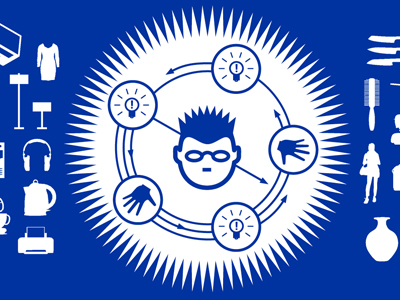Overview
Course video
This course is geared towards designers, educators, design practitioners, and other professionals (non-designers) who want to gain theoretical and practical insights into why culture is relevant in their work and how they can use different methods and tools – applicable in different contexts and practices – to become sensitive to cultural diversity.
There are many methods, tools and techniques to help understand people as individuals, aimed at developing empathic sensitivity. However, design methods that aim to develop sensitivity in a cultural context are rather more limited.
This course is geared towards designers, educators, design practitioners, and other professionals (non-designers) who want to gain theoretical and practical insights into why culture is relevant in their work and how they can use different methods and tools – applicable in different contexts and practices – to become sensitive to cultural diversity. This course will help you identify unconscious biases (e.g. related to gender, skin tone, minority groups), deal with and avoid culture-related pitfalls in design. You will apply culture-sensitive design thinking to increase the value and acceptability of products and services, and help deliver opportunities to potentially tackle issues arising from, for example, migration, integration and globalization.
What You'll Learn:
- Define culture from a personal and professional perspective, and identify how diversity and inclusion are manifested in design;
- Examine cultures of intended users (associated with nations, other social groups such as subcultures) and group behaviors;
- Determine opportunities for applying culture as a tool in design practice;
- Use culture as a source of inspiration for new product design;
- Integrate cultural tools and theory into a design project.
Course credentials
This course has been prepared by international experts in the role of culture in design processes within the Faculty of Industrial Design Engineering at the Delft University of Technology. The course instructors, Annemiek van Boeijen and Chen Hao have extensive practical experience as well as relevant research
Details
Course Outline
The course consists of lectures, interviews with experts and practitioners, quizzes, readings, hands-on assignments and so called 'mapping sessions' including easy to fill in templates. You are encouraged to review your peers’ work, and exchange examples and experiences between you, other practitioners, and TU Delft Master Design students via the discussion forums and Sketchdrive, a tool to share visual work in online classes.
Week 1
You will be introduced to the concept of culture in design and start developing your own understanding of why culture is relevant in the context of a design project. You will explore the concept of acculturation as experienced by migrant children. We will definekey terms such as global culture, dominant culture, subculture, etc. and you will be asked to share your own examples.
Weeks 2 & 3
These weeks we focus on identity: what it is, and how we can explore and design our identity. You will be prompted to map the core values of the design school or the organization you are working for, and define the practices that express these values. You will hear from guest experts about the characteristics of Third Culture Kids (TCK), and about culture sensitive game design.
Weeks 4 & 5
Here we focus on cultural values and practices: what they are, and how we can explore and use them in design. You will apply a socio-cultural dimension model to help raise culture specific questions (for design research), analyze cultural contexts, and generate ideas (opportunities) for culture sensitive design. A guest expert will talk about Cultura, a concept used for developing a more comprehensive view on the cultural context in which individuals live. Finally, you will be asked to develop a design challenge that will bring theory into practice.
Week 6
This week we will look further into how designers approach cultural variation in practice. You will watch a last interview on how we can deal with values and the conflicts or dilemmas that designers face when designing for values. You will complete the weekly key term assignments and finalize your design challenge.
From here on TUD Master students will work on the various design challenges (either their own or one that you pitched to them), integrating cultural tools and theory into practice. At the end of their course you will be invited to join their presentations online so you can learn through their projects how theory can be applied.
Qualifications
Certificates and CEUs
If you successfully complete this course you will earn a professional education certificate and you are eligible to receive 2.5 Continuing Education Units (CEUs).
 View sample certificate
View sample certificate![]()
Chartered Engineering Competences
All our online courses and programs have been matched to the competences determined by KIVI’s Competence Structure, a common frame of reference for everyone, across all disciplines, levels and roles.
These competences apply to this course:
- A1: Extend your theoretical knowledge of new and advancing technologies.
- D2: Present and discuss proposals.
- E3: Undertake engineering activities in a way that contributes to sustainable development and a circular economy.
Admission
This course is geared towards any professional who want to gain insight into why culture is relevant for her or his work, through what lens you can study culture and how you can examine culture and apply the results to your work.
Contact
If you have any questions about this course or the TU Delft online learning environment, please visit our Help & Support page.


